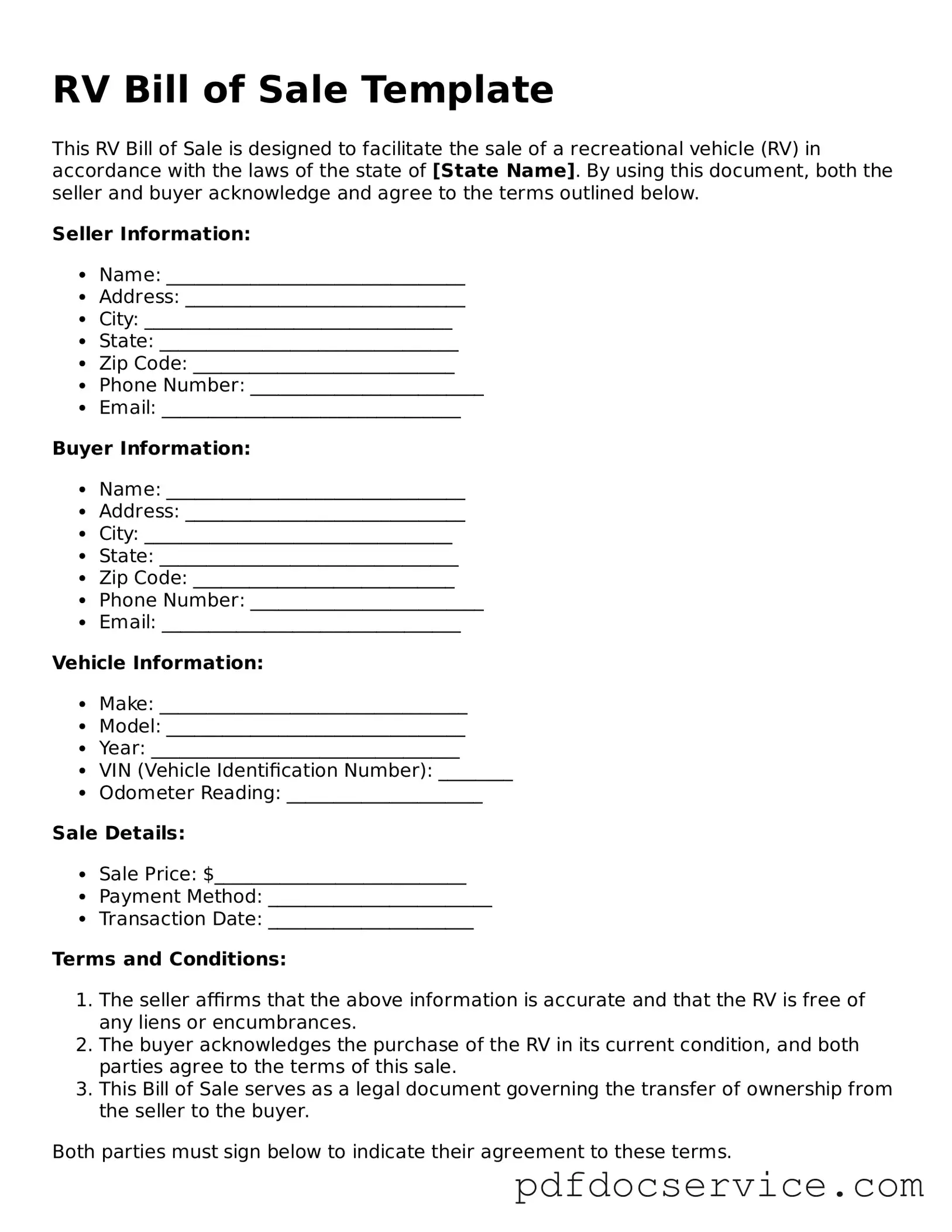What is an RV Bill of Sale?
An RV Bill of Sale is a legal document that records the transfer of ownership of a recreational vehicle (RV) from one party to another. This document serves as proof of the transaction and includes essential details such as the names of the buyer and seller, the vehicle's identification number (VIN), and the sale price. It is important for both parties to have a copy for their records.
Why do I need an RV Bill of Sale?
An RV Bill of Sale is crucial for several reasons:
-
It provides a legal record of the transaction.
-
It helps establish ownership and can be used for registration purposes.
-
It protects both the buyer and seller in case of disputes.
-
It may be required by your state’s Department of Motor Vehicles (DMV) for registration.
When preparing an RV Bill of Sale, it is important to include the following information:
-
Full names and addresses of both the buyer and seller.
-
The RV’s make, model, year, and VIN.
-
The sale price of the RV.
-
The date of the sale.
-
Any additional terms or conditions agreed upon by both parties.
Is a Bill of Sale legally binding?
Yes, an RV Bill of Sale is a legally binding document once both parties sign it. This means that both the buyer and seller are obligated to adhere to the terms outlined in the document. However, it is important to ensure that all information is accurate and complete to avoid potential disputes in the future.
Do I need to have the RV Bill of Sale notarized?
Notarization is not always required for an RV Bill of Sale, but it can add an extra layer of authenticity. Some states may require notarization for the document to be valid, especially if it is used for registration purposes. It is advisable to check your state’s specific requirements to ensure compliance.
Can I use a generic Bill of Sale template?
While a generic Bill of Sale template can be used, it is recommended to use a specific RV Bill of Sale form to ensure that all necessary details are included. Customizing the template to fit your specific transaction helps to prevent any misunderstandings or omissions that could lead to issues later on.
What should I do after completing the RV Bill of Sale?
After completing the RV Bill of Sale, both the buyer and seller should keep a signed copy for their records. The buyer should take the document to their local DMV to register the RV in their name. It is also advisable for the seller to retain proof of the sale in case any questions arise in the future.
What if there are issues after the sale?
If issues arise after the sale, such as disputes over the condition of the RV or the terms of the sale, the RV Bill of Sale can serve as a key piece of evidence. Both parties should refer to the document to clarify the agreed-upon terms. If necessary, seeking legal advice may be beneficial to resolve any disputes.

